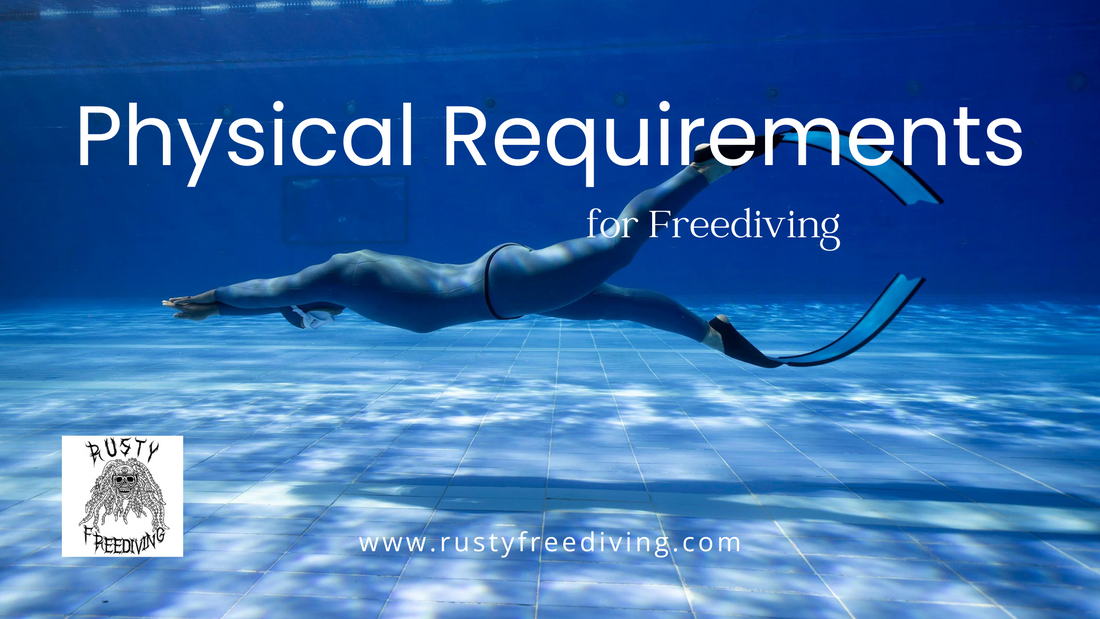What are the Physical Requirements for Freediving? - Freediving is an incredible way to connect with nature and push the limits of your mind and body. As an official SSI Freediving Training Centre located in Perth, Western Australia, we've had the privilege of certifying hundreds of freedivers over the years. Through this experience, we've come to an understanding of the unique physical requirements essential for anyone looking to take up this thrilling sport.
Let us understand the key physical attributes that contribute to successful freediving, dispelling common myths and providing practical guidance to help you prepare for your freediving journey. Whether you're a complete beginner or an experienced diver, understanding these physical requirements will empower you to approach your training with the right mindset and set yourself up for long-term success.
Cardiovascular Fitness
One of the most important physical requirements for freediving is a strong cardiovascular system. As you descend deeper underwater, the pressure increases, and your body has to work harder to circulate oxygenated blood to your vital organs. A well-conditioned heart and lungs can withstand the increased demands and allow you to extend your breath-hold times and dive depths.
To build your cardiovascular fitness, we recommend incorporating diverse exercises into your training routine, such as swimming, running, cycling, or high-intensity interval training. Aim for at least 30 minutes of moderate-intensity exercise several times a week, and gradually increase the intensity and duration as you become more comfortable.
Muscular Strength and Endurance
Freediving requires a significant amount of physical exertion, particularly when it comes to finning (the technique of propelling yourself through the water using your legs). Developing muscular strength and endurance in your legs, core, and upper body can help you conserve energy and maintain good form during your dives.
Focus on exercises that target the major muscle groups used in freediving, such as squats, lunges, planks, and pull-ups. Incorporating strength training into your routine a few times a week can help you build the necessary muscle power and endurance to tackle deeper dives with ease.
Flexibility and Mobility
Flexibility and mobility play a crucial role in freediving, as they allow you to maintain a streamlined body position and efficiently use your muscles during the descent and ascent. Good flexibility in your hips, shoulders, and spine can help you achieve a more hydrodynamic profile, reducing drag and minimising the energy expenditure required to move through the water.
Dedicate time to regular stretching and mobility exercises, focusing on areas like your hamstrings, hip flexors, and back. Consider incorporating yoga or Pilates into your routine to improve your overall flexibility and range of motion.
Breath Control and Lung Capacity
Perhaps the most fundamental physical requirement for freediving is the ability to hold your breath for extended periods. Developing strong breath control and increasing your lung capacity is essential for maximising your dive times and depth.
Start by practising breathing exercises, such as diaphragmatic breathing and breath-holding drills, to train your body to efficiently use and conserve oxygen. Over time, you can gradually increase the duration of your breath-holds, but be sure to do so under the guidance of a qualified instructor to ensure your safety.
Equalisation Ability
As you descend deeper underwater, the increasing water pressure can cause discomfort and even pain in your ears and sinuses. Proper equalisation, the process of adjusting the pressure in these air-filled spaces, is crucial for safe and comfortable freediving.
Developing the ability to effectively equalise using techniques like the Frenzel maneuver or the mouthfill can help you overcome this challenge and dive deeper with ease. Practice these techniques in a pool or confined water environment, and work with your instructor to refine your equalisation skills.
Adaptability and Resilience
Freediving is a demanding sport that requires both physical and mental fortitude. It's important to approach your training with an open and adaptable mindset, as you'll encounter various challenges and setbacks along the way.
Developing resilience and the ability to recover quickly from fatigue or discomfort can help you push through difficult moments and continue progressing in your freediving journey. Incorporate mindfulness practices, such as meditation or visualisation, to cultivate the mental strength and adaptability needed to excel in this sport.
Conclusion
Freediving is a unique and exhilarating sport that requires a specific set of physical attributes. By focusing on cardiovascular fitness, muscular strength and endurance, flexibility and mobility, breath control and lung capacity, equalisation ability, and overall adaptability and resilience, you can set yourself up for success in your freediving journey.
At Rusty Freediving, we're dedicated to helping aspiring freedivers like you develop these essential physical skills through our comprehensive training programs. Whether you're a beginner or an experienced diver, we offer tailored training and ensure you acquire the necessary physical capabilities to dive deeper, stay longer, and truly connect with the underwater world.

